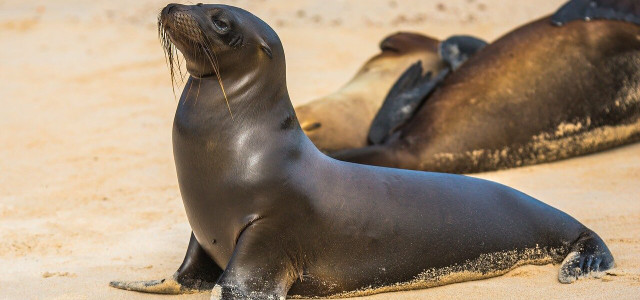Species of sea lions face various threats, both natural and manmade. We’ll tell you which species are endangered, why, and what you can do to help protect them.
There are six species of sea lion that exist today, and three of these species are labelled endangered by the International Union for Conservation of Nature (IUCN): the Australian, New Zealand and Galápagos sea lion. One species, the Stellar sea lion, is endangered under the United States’ Endangered Species Act. Whole colonies of sea lion were wiped out in the 19th century, as a result of humans hunting them. Although sealing is now illegal, population numbers of sea lions have taken a long time to recover, and this is a big factor as to why sea lions around the world are endangered today. In addition to hunting, factors such as pollution, climate change, bycatch, and disease are other contributors to why some species of sea lion are endangered today.
Threats to Australian Sea Lions
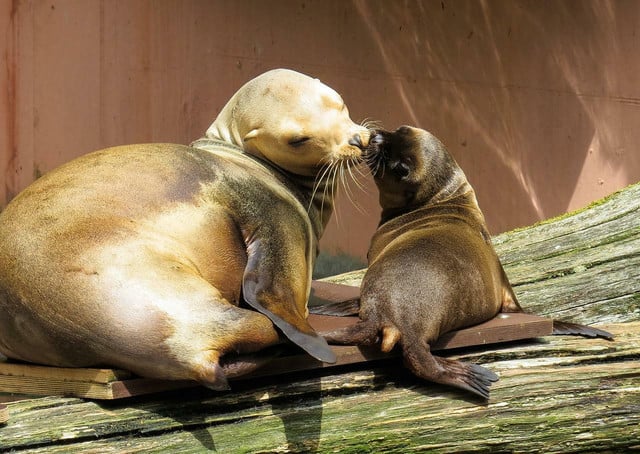
Complications from fishing are the primary reason why the Australian sea lion, Neophoca cinerea, is endangered today. Gillnets are currently the biggest threat to Australia sea lion colonies. Gillnets are invisible, thin mesh nets suspended in the water used by fishermen often to capture sharks to sell in the ‘flake’ and chip market in Australia. Australian sea lions can get caught in these nets, and they can drown as a result. In 2010, scientists published a report that found up to 374 Australia sea lions were killed in the fishery every 18 months.
Issues Facing Galápagos Sea Lions
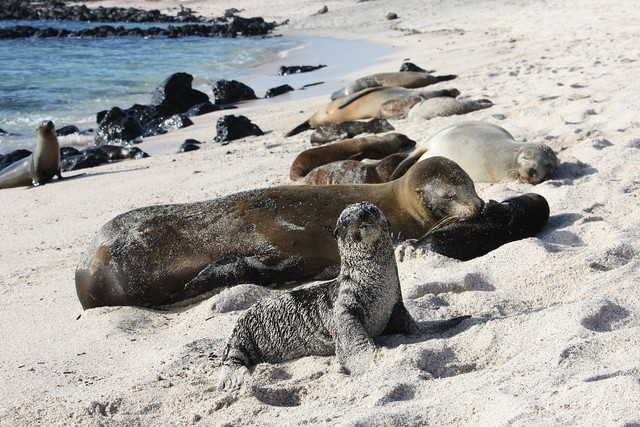


The Galápagos sea lion, Zalophus wollebaeki, is endangered in particular due to climate change, disease, and pollution. The population of the Galápagos sea lion has drastically decreased over the past 30 years, and since 2008 has been labelled as endangered by the IUCN.
The natural predator of the Galápagos sea lion are sharks and killer whales, but their main threat is the El Niño event. As ocean temperatures rise during this weather phenomenon, sea lions are forced into deeper, colder waters in search of food. The last significant El Niño event in 2015 saw the species decline by almost twenty four percent. Human activity is another threat to Galápagos sea lion numbers. Studies have found that the Galápagos sea lion is more prone to starvation because of exposure to human influences like pets and pollution, which can weaken their level of immunity and make them unable to hunt for food.
Why Are New Zealand Sea Lions Endangered?
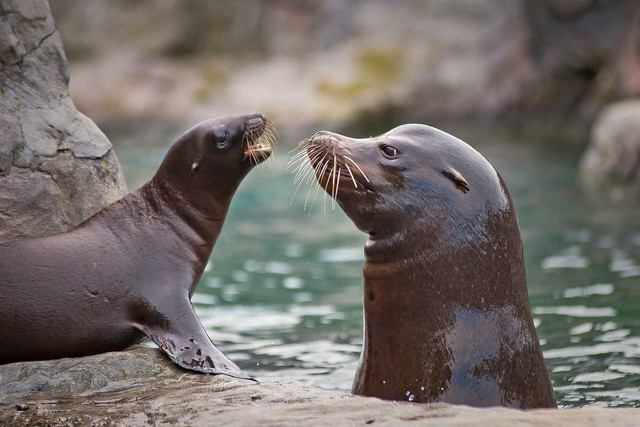


New Zealand sea lions, Phocarctos hookeri, also known as whakahao/rāpoka, are the rarest species of sea lion in the world, and the most threatened because of their declining numbers. The IUCN added the New Zealand sea lion to the endangered list in 2015, whilst there were just 3000 individuals left in total, predicting a 98 percent probability of extinction within the next five generations.
Similar to Australian sea lions, research shows that fishing is the number one human-induced threat to New Zealand sea lions. In particular, they can become caught in fishing nets, which can cause them to drown. Commercial fishing also means that sea lions have to compete for their food with commercial fishermen. Disease is another factor as to why the New Zealand sea lion is endangered. There have been two recorded outbreaks of bacterial infections within the New Zealand sea lion colonies. The first disease outbreak which occurred in 1998, resulted in the loss of fifty three percent of pups.
Protecting Endangered Sea Lions
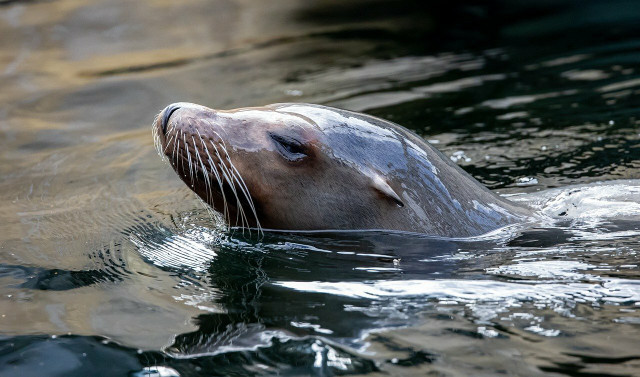


Countries like Australia have specific recovery plans in place to help to protect sea lions. In 2018, the Western Australia government established a series of sea lion protection zones around known breeding colonies, and commercial fisheries are prohibited from using gillnets in these areas.
On an individual level, you can help to protect sea lions by being more climate conscious in your everyday life, and making small changes to help combat climate change. In particular, you can limit your consumption of disposable and single use plastics. Another great way to help protect sea lions is to volunteer at a beach clear up, which will help protect sea lions from ingesting or being strangled by plastics and other trash that is left on the beach. You can also donate to animal rights and environmental organisations, who work to protect wildlife such as sea lions.
Read more:
- Why Are Tigers Endangered? The 4 Major Threats
- Are Bears Endangered? These 3 Species Are
- Gorillas Are Endangered and Here’s How You Can Help
Do you like this post?






